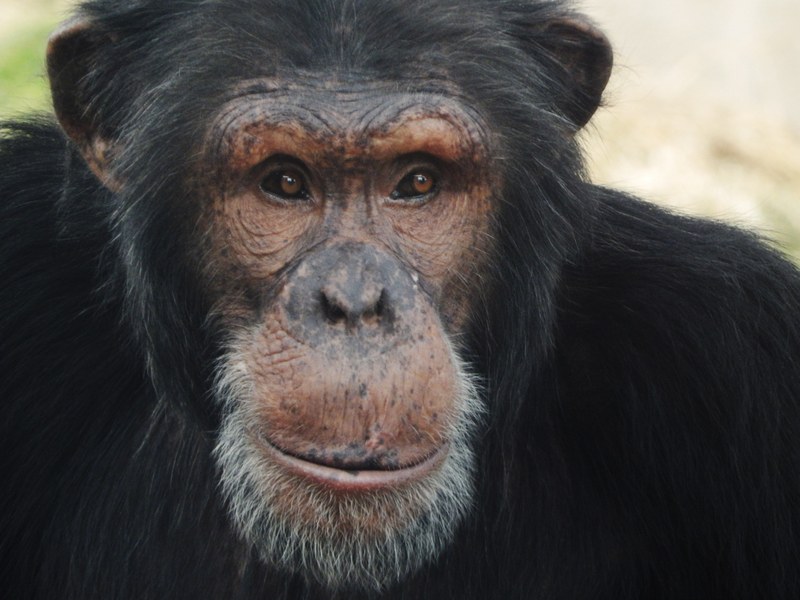
ABQ BioPark grieves the loss of Thunder the chimpanzee
July 11, 2022 - The ABQ BioPark Zoo is grieving the loss of Thunder, a chimpanzee who passed away on Saturday, July 9. He succumbed to complications from an infection of Shigella bacteria. He was 22 years old.
In early July, Thunder began showing signs of gastrointestinal illness, and fecal samples from the chimpanzee troop tested positive for the Shigella bacteria.
Like all apes at the BioPark, Thunder is trained to participate in his own healthcare. Thanks to the trust and incredibly strong bond he has formed with his caretakers, Thunder actively ate, drank and took medication during his illness. He responded very well on some days, and staff had high hopes for his recovery. However, Thunder declined quickly on Saturday, and veterinary staff were unable to revive him.
The other chimpanzees at the BioPark are not showing signs of infection but are being closely monitored for any change in behavior.
Apes at the BioPark were impacted by Shigella in August and September 2021. While impossible to know for sure, it is suspected that the bacteria that infected Thunder were harbored by an asymptomatic chronic carrier within the troop.
Thunder and his twin sister Rainy were born at a medical lab during a thunderstorm. In March 2002, they found safe haven at the ABQ BioPark when they arrived along with a separate family group of eight chimps from the same lab.
Thunder and Rainy needed special care upon arrival. Without a mother, the twins had to be hand raised by BioPark staff until they were old enough to join to the troop. With expert care, the young chimps were successfully integrated into the family group. The entire group was then introduced to the new exhibit, where for the first time in their lives the chimpanzees had access to grass, a pool and a large and complex outdoor space.
As he matured, Thunder formed strong social relationships with the other chimpanzees, including mature male Alf. “We have been lucky to watch him grow from a youngster to a developing leader and protector of the troop,” said Lynn Tupa, zoo manager. “He was known among staff and guests for his curiosity and mischievous nature.”
Since Shigella appeared at the Zoo in 2021, additional biosecurity protocols were incorporated into daily regimens. Staff are required to wear face masks when in proximity to primates. They also continue to use foot baths and dedicated boots to prevent cross contamination. The BioPark has also collaborated with the United States Department of Agriculture, the Center for Disease Control and the New Mexico Department of Health to further develop biosecurity protocol.
While Shigella infections have occurred in zoos, they are not common. Only a few cases have been reported in the last decade. Everything the BioPark learns about the disease’s progression and animals’ responses is being documented and shared with other animal and disease professionals to guide decision-making in the future. Shigella can also impact wild chimpanzees and other apes, making this information extremely valuable for worldwide conservation efforts. Chimpanzees are listed as endangered by the International Union for the Conservation of Nature (IUCN).
